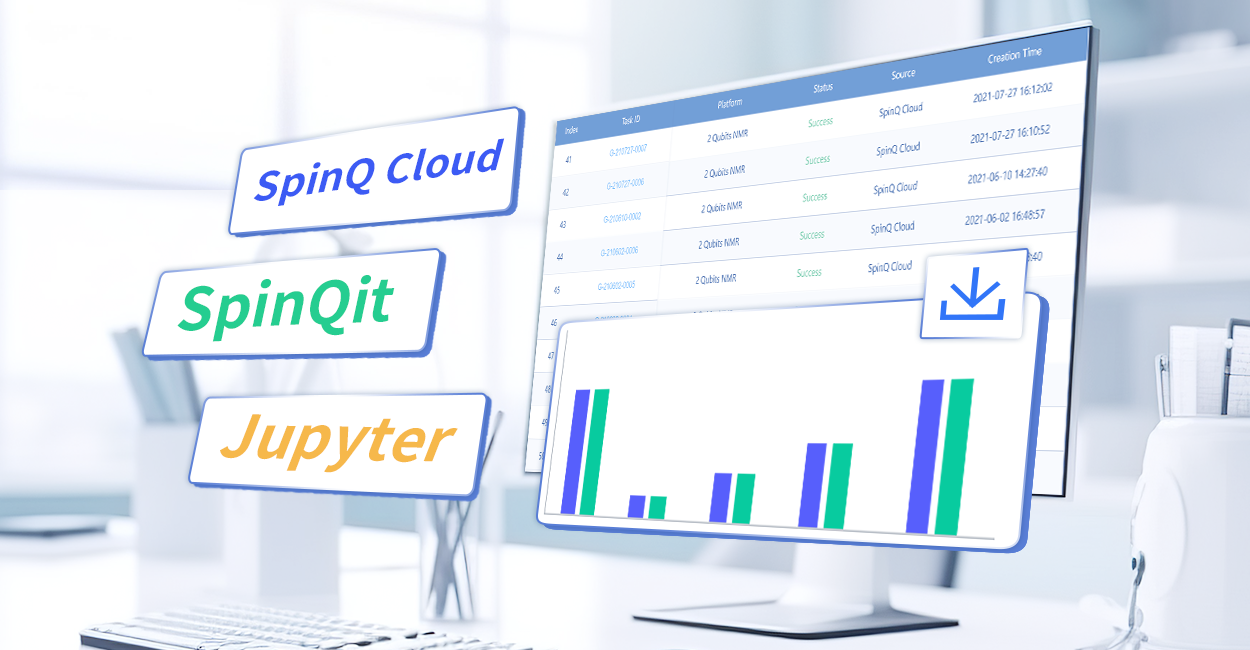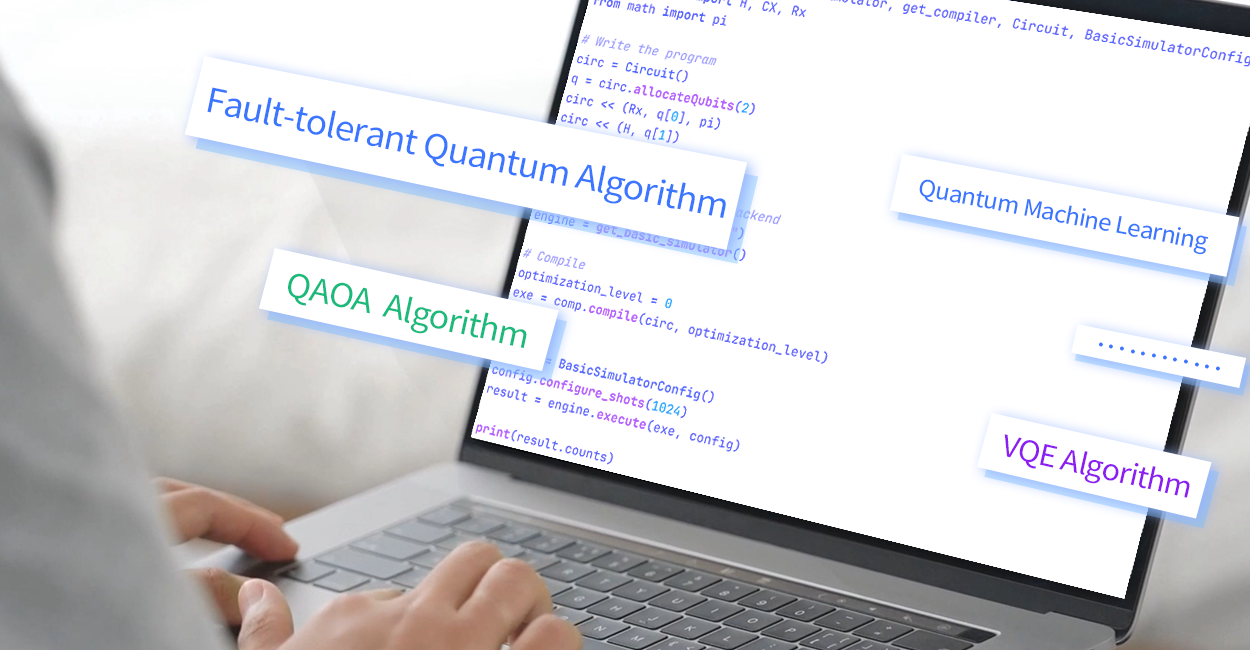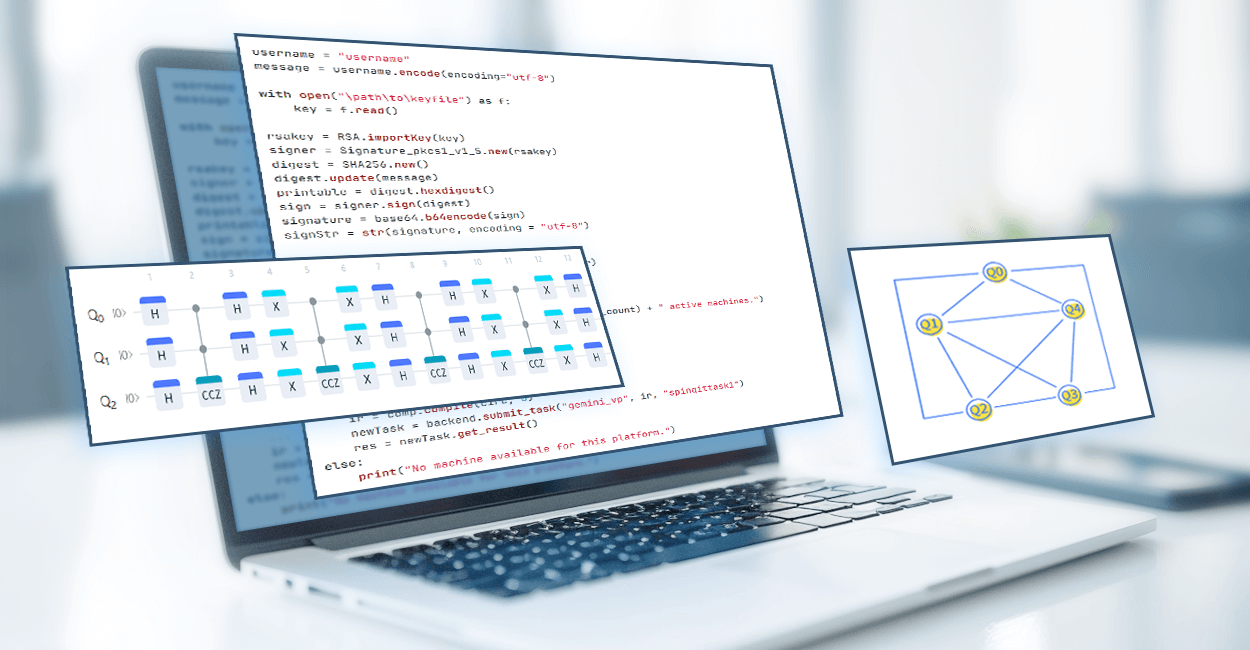Cloud-Based Quantum Computing: How it Works?
2025.02.21 · Blog quantum advantagequantum readyquantum supremacy
Cloud-Based Quantum Computing is a service that provides remote access to quantum computing resources and hardware, allowing users to run quantum algorithms and experiments without owning the physical quantum computer.
In this article, we'll dive into how cloud-based quantum computing works, explore its real-world applications, and uncover its future trends and challenges. Keep reading to learn more!

How Does Cloud-Based Quantum Computing Work?
Cloud-Based Quantum Computing works by providing remote access to quantum processors hosted on cloud platforms, which are managed by quantum computing service providers.
These platforms allow users to access and run quantum algorithms on real quantum hardware without needing to own or maintain expensive quantum machines. Here's a more detailed breakdown of how it works:
1. Quantum Hardware on the Cloud
Quantum Processors: Quantum computers in the cloud are physically hosted in data centers equipped with specialized quantum processors. These processors use qubits to perform quantum operations. The hardware could be based on technologies like superconducting qubits, trapped ions, or photonic qubits.
Supercooling and Isolation: To function properly, quantum processors need to be kept at extremely low temperatures (close to absolute zero) and isolated from noise or interference, which is done in controlled environments in the cloud provider's data centers.
2. Quantum Cloud Platforms
Access via APIs and Interfaces: Cloud platforms like IBM Quantum, SpinQ Quantum Cloud, Microsoft Azure Quantum, Amazon Braket, or Google Quantum AI provide users with an interface to interact with quantum hardware remotely. These platforms offer both quantum programming environments and simulators for users to develop quantum algorithms and run simulations.
Quantum Circuits: Users write quantum algorithms in a high-level programming language (such as Qiskit for IBM Quantum, Cirq for Google, or SpinQit for SpinQ) and submit them to the cloud platform, which then converts these programs into quantum circuits for execution on the quantum processor.

3. Execution of Quantum Algorithms
Quantum Gate Operations: The quantum algorithm is processed by applying quantum gates (like Hadamard, CNOT, etc.) to qubits on the cloud-based quantum computer. These gates manipulate the qubits' states according to the algorithm's logic.
Parallelism and Superposition: Thanks to quantum superposition and entanglement, a quantum computer can explore multiple solutions to a problem in parallel. However, because of the probabilistic nature of quantum computing, the results are measured and returned as the most likely outcome.
4. Classical-Quantum Hybrid
Hybrid Systems: Quantum computing in the cloud often works in a hybrid model with classical computers. Many quantum algorithms require classical post-processing after quantum computation. The cloud system runs the quantum algorithm, and then classical resources are used to analyze or refine the results, sometimes in real-time.
Integration with Classical Infrastructure: These platforms integrate quantum processors with classical systems (i.e., CPUs, GPUs) for tasks like optimization, data analysis, and simulation. The cloud environment provides the computational power needed to support both quantum and classical computations.
5. Return of Results
Quantum Measurement: After running the algorithm on the quantum computer, the quantum states of the qubits are measured, which causes them to collapse to either a 0 or 1. The results are then sent back to the user's local system for analysis.
Visualization and Analysis: Many quantum cloud platforms provide tools to visualize the results, simulate different scenarios, and analyze quantum behavior to better understand the outcomes.
6. Scalability and Accessibility
Scalable Resources: Cloud quantum services offer users access to a range of quantum computing resources, from small-scale quantum computers with a few qubits to more powerful, larger-scale processors. This scalability allows researchers and companies to experiment without needing expensive hardware.
Accessibility: Quantum cloud computing makes cutting-edge quantum technology accessible to developers, researchers, and businesses around the world, democratizing access to quantum resources that were once only available in specialized labs.
These platforms enable users to leverage the power of quantum computing without owning expensive quantum computers, offering both cloud-based quantum processors and simulators for a wide range of quantum computing applications.
How Cloud-Based Quantum Computing Is Used: Real-World Applications
Quantum cloud computing is used in various ways across research, business, and academia to explore quantum algorithms, simulate quantum systems, and solve complex problems. Here's how it's typically used:
1. Developing and Running Quantum Algorithms
Algorithm Development: Researchers and developers use quantum cloud platforms to write and test quantum algorithms. These platforms provide tools, like Qiskit (IBM), Cirq (Google), and SpinQit (SpinQ), to create quantum circuits and perform calculations using quantum gates.
Execution on Quantum Processors: Users can send their quantum algorithms to be executed on real quantum hardware hosted in the cloud. This eliminates the need to own real quantum hardware, making it accessible for businesses and researchers to experiment and test their quantum solutions remotely.

2. Quantum Simulation
Simulating Quantum Systems: Quantum cloud computing allows users to simulate quantum systems, which is useful for studying phenomena like quantum chemistry and physics that are difficult to model on classical computers. For example, quantum computers can simulate the behavior of molecules, helping in drug discovery or material science.
Optimization Problems: Quantum computers can be used to solve complex optimization problems (e.g., finding the best route for deliveries or financial portfolio optimization). Quantum cloud services make it possible to test these solutions on quantum processors without the need for dedicated hardware.

3. Quantum Machine Learning
Enhancing AI Models: Cloud-based quantum computing is used to explore quantum machine learning algorithms that could potentially speed up data processing and improve the efficiency of learning models. This includes tasks like pattern recognition, data classification, and clustering, which are critical in AI and big data applications.
Hybrid Classical-Quantum Algorithms: Cloud platforms enable hybrid approaches where quantum computing handles specific tasks within machine learning models, while classical systems handle other tasks, optimizing the overall process.
4. Cryptography and Security
Quantum-Resistant Cryptography: Cloud-based quantum computing is used to develop and test quantum algorithms for quantum key distribution (QKD) and other post-quantum cryptography methods. This is especially important for industries like banking, finance, and defense that rely on secure data encryption.
Exploring Quantum-Secure Communication: By leveraging cloud-based quantum systems, users can experiment with quantum encryption protocols to ensure the future security of data against quantum-powered attacks on current encryption methods.
5. Quantum Hardware Testing and Research
Testing New Hardware Architectures: Researchers use quantum cloud platforms to test new quantum hardware architectures and develop innovations in qubit design, quantum error correction, and quantum entanglement. Cloud-based systems enable them to run experiments on a variety of quantum processors from different companies.
Performance Benchmarking: Quantum cloud computing provides access to different types of quantum processors, allowing users to benchmark their quantum algorithms and compare the performance of various quantum technologies.
6. Quantum Education and Training
Learning Quantum Computing: Many educational institutions and individual learners use quantum cloud platforms to practice quantum programming and learn about quantum algorithms. Providers like SpinQ Quantum Cloud offer educational tools, tutorials, and courses to help people get hands-on experience with quantum systems.
Quantum Research Collaboration: Cloud platforms facilitate collaboration between academic institutions, companies, and research labs. Researchers can share quantum computing resources, experiment with quantum applications, and collaborate on solving complex problems in fields like chemistry, physics, and engineering.
7. Industry-Specific Applications
Drug Discovery and Healthcare: Quantum cloud computing is used to simulate molecular interactions, helping researchers in pharmaceutical companies discover new drugs or predict how chemicals will behave, which is much faster than classical simulations.
Financial Modeling and Risk Analysis: Quantum cloud computing can be used for complex financial modeling, including risk assessment, portfolio optimization, and fraud detection. Quantum algorithms are particularly suited for large-scale data analysis and pattern recognition, which are essential in finance.
Energy and Material Science: Cloud-based quantum computing helps researchers simulate materials at the quantum level, leading to the discovery of more efficient energy storage solutions, like advanced batteries or superconducting materials.
8. Collaborative Research and Development
Global Collaboration: Cloud-based quantum computing platforms enable collaboration across geographic and institutional boundaries. Researchers and organizations can work together on the same platform, share results, and accelerate innovation by combining expertise from different fields.
Quantum cloud computing democratizes access to quantum technology, enabling researchers, businesses, and educational institutions to perform cutting-edge experiments without the need for expensive quantum computers. Whether for research, innovation, or education, quantum cloud computing provides powerful tools to explore and solve some of the world's most complex problems.
Future Trends in Cloud-Based Quantum Computing
1. Increased Accessibility and Scalability
Quantum cloud platforms will become more accessible, enabling industries to scale quantum resources, driving adoption in fields like healthcare and finance.
2. Advancements in Quantum Algorithms
Expect rapid progress in quantum algorithms for optimization, machine learning, and simulations, revolutionizing sectors like drug discovery and AI.
3. Integration with Classical Systems
Quantum cloud computing will seamlessly integrate with classical systems, forming hybrid solutions that leverage both technologies for enhanced problem-solving.
4. Quantum-Resistant Cryptography
As quantum computing advances, it poses a threat to current encryption methods. This challenge is driving the development of quantum-resistant cryptography. Quantum cloud platforms are at the forefront of this effort, working to create encryption standards that can withstand the power of quantum computers, ensuring data security in the quantum era.
Key Challenges in Cloud-Based Quantum Computing
Cloud-based quantum computing faces several critical challenges, most of which stem from the inherent limitations of quantum hardware and the complexities of scaling quantum systems for multi-user environments.
1. Quantum Error Correction and Noise Management
Quantum computers are highly sensitive to noise and environmental interference. In a cloud environment, where multiple users share quantum resources, ensuring accurate computations through effective quantum error correction (QEC) is vital. Without robust error correction, the results from cloud-based quantum systems could be unreliable, limiting their practical use.
2. Quantum Hardware Limitations and Scalability
Quantum hardware faces challenges such as short coherence times and limited scalability of qubits. These limitations affect the performance of quantum systems, particularly in cloud-based platforms that must handle large-scale, simultaneous computations. Overcoming these hardware issues is essential to support reliable and efficient quantum computing in the cloud.
3. Security and Privacy Concerns
Quantum computing has the potential to break traditional encryption algorithms, creating significant security and privacy risks. For quantum cloud services, ensuring data security will be a major challenge. These cloud platforms must address the risks posed by quantum computing by adopting new, quantum-secure methods to protect sensitive information and maintain privacy in the cloud.
Conclusion
Cloud-based quantum computing is revolutionizing the way we access and utilize quantum technology. By offering remote access to powerful quantum computers, it enables groundbreaking applications across industries.
While the future holds exciting possibilities, addressing challenges like error correction, hardware limitations, and security will be crucial to fully unlock its potential. As quantum computing continues to evolve, cloud platforms will play a central role in shaping the next generation of quantum innovation.
FAQs
1. What is the difference between cloud computing and quantum cloud computing?
Cloud computing refers to the delivery of computing services (like storage, processing, and applications) over the internet, typically using traditional classical computers. It allows users to access and use resources on-demand, without owning the physical hardware. Major benefits include scalability, cost-effectiveness, and flexibility.
Quantum cloud computing, on the other hand, utilizes quantum computers to perform computations. These quantum systems leverage quantum bits (qubits) and principles of quantum mechanics (such as superposition and entanglement) to solve specific complex problems much faster than classical computers in certain areas, like optimization and cryptography. Quantum cloud computing gives users remote access to quantum hardware, often for quantum research and advanced computations.
Providers like Amazon Web Services (AWS), SpinQ Cloud, IBM's Q Experience, and Microsoft Azure offer cloud-based access to quantum computing resources.
Featured Content






